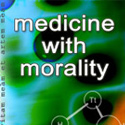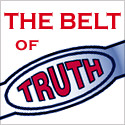On 22 Nov 1963 three prophets died
On 22 Nov 1963 three prophets died
On a fateful day in 1963, the 55th anniversary of which we celebrate today, 22 November, three prophets died, the death of two eclipsed by the dramatic assassination of the third. The death of the Declared Hedonist overshadowed the deaths of the Declared Atheist and the Declared Christian. The Declared Hedonist was prophetic in his wisdom and in recognising the evil nature of his enemy and we do well today to learn from his practical wisdom and insight into evil. JFK – John Fitzgerald Kennedy – was indeed a great statesman albeit flawed in his humanity. I do hope there was a sense in which he acknowledged God and laid himself before Him.
The Declared Atheist of course was none other than Aldous Leonard Huxley – three initials again – and as you know he was wonderfully prophetic. In 1931 he described in Brave New World a laboratory in which fertilized human ova would break into separate buds, each maturing into an embryo that could be genetically manipulated for various roles and purposes.
There are no prizes for those of you who know me to deduce the identity of the Declared Christian – arguably one of the greatest writers and apologists ever – yes, Clive Staples Lewis, again known by his initials, hardly ever by his two given names. His work is major: in an incredible and prophetic series of lectures in 1943 at the University of Durham, subsequently published as The Abolition of Man, he talks about ‘men without chests’ or adults who lack moral formation and moral character, who divorce their head from their hearts, who use their ‘head’ but lose their ‘chest.’
Lewis writes:
‘In a sort of ghastly simplicity we remove the organ and demand the function. We make men without chests and expect of them virtue and enterprise. We laugh at honour and are shocked to find traitors in our midst. We castrate and bid the geldings be fruitful.’
‘The practical result of (such) education… must be the destruction of the society which accepts it.’
We might illustrate this by saying that we sow violence and indiscriminate sex on media screens and computer games and then wonder why we reap violence and indiscriminate sex in our society.
Lewis again:
‘Stepping outside (the moral values), they have stepped into the void. Nor are their subjects necessarily unhappy men. They are not men at all: they are artefacts. Man’s final conquest has proved to be the abolition of man.’
J I Packer, in his brilliant article Surprised by Lewis in Christianity Today Sept 1998, writes:
‘The Abolition of Man was the waving of a red flag at an oncoming juggernaut that would reduce education to the learning of techniques and so dehumanize and destroy it, tearing out of it that which is its true heart.
The attempt was ignored, and today we reap the bitter fruits… The inner desolation and desperation that young people experience as subjectivist relativism and nihilism are wished upon them in schools and universities is a tragedy. (If you do not know what I am referring to, listen to the pop singers; they will tell you.)’
Wow! I hope you start to get a glimmer of why we celebrate what God has done through CSLewis and why his writings become more and more significant. Lewis’ fiction is about the encouragement of men with chests. The Narnia Chronicles are about the development of ethical, moral and spiritual values in children so they will grow chests. I commend the writings of this most significant thinker, visionary, teacher and prophet to you at this remembrance time.
—————————————————–
Please see below re the anniversary of CSL birth and the quotes re euthanasia by M. Scott Peck.
CSLewis Centenary.
“The Abolition of Man and ‘men without chests’”.
Paper delivered at Morley Baptist Church, Western Australia
29 November 1998
Today we celebrate the actual centenary of the birth of Clive Staples Lewis in Belfast 29 Nov 1898.
In our travels of Aug and Sept this year I had contact with three significant books – two published last year and the other given as a series of three memorial lectures by CSLewis at the University of Durham in 1943, and published as The Abolition of Man. I took M.Scott Peck’s book The Denial of the Soul – spiritual and medical perspectives on euthanasia and mortality – with me to read. In Massachusetts we were privileged to stay with Emeritus Professor of Economics Doug Vickers and his wife and I was introduced to Doug’s book Economics and Ethics in which he seeks to re-establish the bridges between economics and ethical philosophy – in short, ‘to inform the choices that are made between guns and butter’ as he puts it – the breaking down of such bridges and the divorce of the science of economics from its moral values resulting in catastrophe for the human race. Some of you may recall that I wrote a small paper a few years ago entitled The Human Consequences of Economic Rationalism because of what I saw it (economic rationalism) was doing to the teaching and nursing professions in particular with the resulting destruction of professionalism, so you would understand why this book was significant for me.
In The Denial of the Soul M.Scott Peck (of The Road Less Travelled fame) talks about this destruction:
‘…advocates of euthanasia on demand… fail to realize.. that the achievement of their ends would quite possibly create a society even more soulless and mechanistic than the one we have now… a society where there is no potential glory in dying, an utterly rational society where people are simply put to sleep upon request without any reference to the irrational mystery of their souls or to God who is their source and that of all true glory.’ (p228.)
Peck, like CSLewis before him, is
‘concerned about the secularization of public education, which has made it virtually impossible to teach values…’ (p234)
CSLewis, in this incredible and prophetic series of lectures in 1943, talks about ‘men without chests’ or adults who lack moral formation and moral character, who divorce their head from their hearts, who use their ‘head’ but lose their ‘chest.’ What a wonderfully penetrating and insulting term! ‘Men without chests.’ We should make more of it – not only to mean that people should be more ethical in their economics, more moral in their science and re-integrate values in education, but also to have the courage and moral fortitude to stand up and fight for the future of our society. Thank God for Christian schools.
J I Packer, in his brilliant article Surprised by Lewis in Christianity Today Sept 1998, writes:
‘The Abolition of Man was the waving of a red flag at an oncoming juggernaut that would reduce education to the learning of techniques and so dehumanize and destroy it, tearing out of it that which is its true heart.’
Packer further writes:
‘The attempt was ignored, and today we reap the bitter fruits… The inner desolation and desperation that young people experience as subjectivist relativism and nihilism are wished upon them in schools and universities is a tragedy. (If you do not know what I am referring to, listen to the pop singers; they will tell you.)’
Lewis, in his lecture, writes:
‘In a sort of ghastly simplicity we remove the organ and demand the function. We make men without chests and expect of them virtue and enterprise. We laugh at honour and are shocked to find traitors in our midst. We castrate and bid the geldings be fruitful.’
and:
‘The practical result of (such) education… must be the destruction of the society which accepts it.’
and:
‘Stepping outside (the moral values), they have stepped into the void. Nor are their subjects necessarily unhappy men. They are not men at all: they are artefacts. Man’s final conquest has proved to be the abolition of man.’
Wow! I hope you start to get a glimmer of why we celebrate what God has done through CSLewis and why his writings become more and more significant. Lewis’ fiction is about the encouragement of men with chests. The Narnia Chronicles are about the development of ethical, moral and spiritual values in children so they will grow chests. I commend the writings of this most significant thinker, visionary, teacher and prophet to you on this his centenary day.
Lachlan Dunjey, Western Australia, 29 Nov 1998






